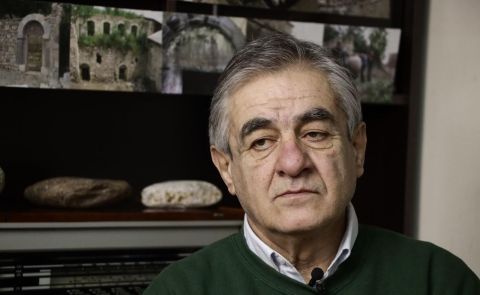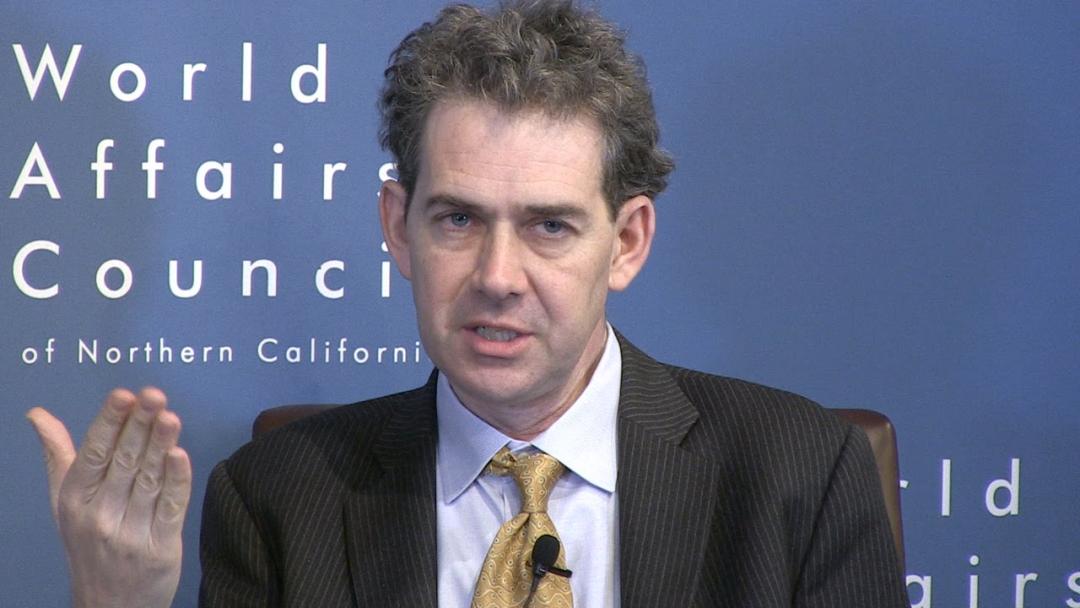
Statelets and the Russian Security Vacuum: an interview with Thomas de Waal

The term “Russian security vacuum” proliferates, mainly in relation to the role Russian peacekeepers in Karabakh are not willing to play. As Azerbaijan sets checkpoints along the Lachin corridor, the notion of Russia becoming the guarantor of peace in the South Caucasus is losing ground. This poses a broader question for Transnistria, Abkhazia, and South Ossetia (Samachablo) statelets. These political entities largely depend on Russian security guarantees, social transfers, free or heavily subsidised natural gas supply, fertilizers, transport networks, and other support. The price of a political existence on the margins of the international system is an exclusive relationship with Russia of the kind that cannot be developed when you open embassies and join international networks. In the context of the war in Ukraine, Russia will keep this kind of support to a minimum. What then happens to these islands of international isolation? Very few people have an “insight track” on how these places work. To get a bird’s-eye view, Caucasus Watch talked to the foremost regional analyst in the UK, Thomas de Waal, a senior fellow with Carnegie Europe.
The term "security vacuum" that the Russians leave in the Caucasus is often associated with their role as peacekeepers along the Lachin Corridor. Do you see the potential for other specific security challenges as the Russians concentrate on Ukraine?
Non-state entities are in trouble.
The Moldovan government sees an opportunity it has not seen for a generation. Transnistria is reliant on Russian gas flowing through Ukraine. When the Ukrainian transit contract ends in December 2024, the enclave might be cut off. That will disrupt energy production and Russia’s influence over the local population.
What the Russians did in Karabakh is being watched by others, not just the Armenians.
Moscow is a black box at the best of times, and it is hard to have a good insight into where decisions are made in the South Caucasus. Clearly, for various reasons, Moscow has decided it does not want to cross Baku and is tolerating the so-called environmentalists and now the Azerbaijani troops along the Lachin Corridor.
The Russian peacekeeping mission in Lachin does not have an international mandate or clear rules of engagement. The introduction of Azerbaijani checkpoints seals off Karabakh from Armenia. The question I have is whether Azerbaijan decided to move to test how far it could go or whether there was an implicit understanding of Russia.
Well, yes, but don’t the Russians have the OSCE Albania communiqué as a foundation for the international legitimacy of the Karabakh mission?
The OSCE statement [in December 2021] endorsed the Russian mission, but no Western country has publicly endorsed this mandate. Publicly, no one speaks to Russia as a stakeholder. In private, France is probably ready to support Russia’s continuous presence in Karabakh. For other countries, I am less certain.
There has been a discussion about their replacement by an international force: the OSCE or international peacekeepers. {Prior to the Second Karabakh War in 2020} Armenia did not want that, but hindsight is rarely helpful.
So, are the Russians ready to go?
The Russians are never ready to go.
The joke is that Russian peacekeepers are, in fact, “piece-keepers” and will fight for their mandate to remain on the ground. However, Azerbaijan has levers. In May 2025, the Azerbaijanis can veto the mandate, and, depending on the situation in which the Russians will find themselves, Baku will consider its options.
For the Russians, the Karabakh force may have no wider instrumentality. Deploying FSB border guards to protect the [planned road and rail] route from Azerbaijan via South Armenia to Nakhichevan may be more important from a power projection standpoint. More Russians in Armenia would be both easier to push through and strategically more impactful. It is interesting to note that it is Baku that insists on FSB inspectors along that particular transport corridor.
There are reports that the Kremlin is reducing its commitment to regimes like Abkhazia and South Ossetia. Do you feel there is a chance the status quo may change?
I do not see rapid destabilisation or changes in the status quo in the near future.
Russia has recognised them as independent states; they border Russia, and there is a security dimension there. There is troop movement, with troops relocating to Ukraine, but these places will not be abandoned.
But there is economic degradation. The Russians want property privatisation in Abkhazia to open the place up to wealthy Russian investors.
The Georgian government is very much in a passive mode and is not likely to plan anything there. We know what happened in 2008.
During the pandemic, there was particularly successful engagement with Abkhazia on healthcare, but this did not turn into political influence.
In Abkhazia, there is a pre-emptive tightening of the regime, talk of a “foreign agents law”, and a change in how they handle foreign passports, insisting on a stamp rather than a separate page. Most international visitors are likely to refuse such a stamp on their passport, which could further hurt the little tourism Abkhazia has had, including Turkish visitors.
So, Abkhazia is not like Moldova in that respect, where a change in the status quo is more likely.
Given the close relationship between Abkhazia and Turkey, do you see scope for more security volatility in the region?
Turkey and Russia have many open issues.
Turkey values its relationship with Georgia, and I don’t see Ankara playing with that. There is an Abkhaz parliamentarian in the Turkish parliament now, and, of course, we may expect that the subject of Abhazia will be more frequently raised. But I do not see Turkey going beyond being an economic player.
Even in the South Caucasus, Turkey is pursuing a pragmatic policy. The road and rail links are obvious, but the policy initiative is really in Baku. The Turkish government has made normalisation of relations with Armenia a dependent variable on Baku’s consent. They are not moving fast to normalise relations with Yerevan, contrary to initial promises.
President Erdogan clearly has bigger fish to fry. The focus is more broadly on the Black Sea and the relationship with Russia. And there is clearly a perspective for the development of a Middle Corridor that avoids Russia and is quicker than sending containers via sea to China. My guess is that the Middle Corridor across the Caspian Sea will focus more on Central Asia than China.
For Russia, holding on to control over Abkhazia is significant and relatively inexpensive. Transnistria depends on Ukrainian gas transit. They depend on Russian free gas for electricity, heat, steel production, and the like. As a system, this may not be viable without the free flow of Russian natural gas.
Two things are happening: Moldova is building new electricity lines to Romania. By the end of 2024, the Ukrainian gas transit contract will expire. To my mind, this points towards an economic collapse. We might see something similar in Abkhazia, but in much slower motion. This is not an imminent issue.
Iran and Russia are coming together. Trans-Caspian trade is surging, the Russians are investing in rail connections, the Iranians in Dagestani ports, and, infamously, there is an intense security cooperation. Do you see Iran as an aspirant "security provider” in the Caucasus, as in Lebanon, Iraq, or Syria?
There is a natural partnership between Iran and Russia forged by sanctions, as they have nothing to lose. The Shaheed drones are a frequent reference here, as is Iran’s cooperation with the Eurasian Union.
In the South Caucasus, both Tehran and Moscow do not have the financial resources to build substantial influence through a massive North-South International Transport Corridor. The main question in that respect is, “Where is the money going to come from?”
Who is going to pay for the infrastructure? You will get no international investors on this, and even if there is an agreement to build from southern Azerbaijan, Nakhichevan is of more strategic significance to Iran as it revitalises an existing old Soviet rail network. That is already planned and is cheaper. Equally, for western partners, it makes more sense to approve an east-west route, even if Iran gets some connectivity.
Thousands of Russians are immigrating to the Caucasus, fueling economic growth. Is this an opportunity to rehabilitate relations with Russians, even with Russia? Do you share the fear of “Russian infiltration?”
It is too early to say whether Russians are becoming a political factor. In Armenia, Russians are not seen as colonizers as they are in Georgia. There is a better relationship with them in Yerevan. There is a clear issue of rents, and landlords are making the most, causing problems for the locals. The same is true in Tbilisi.
The local IT industry is benefiting in Armenia. In Georgia, they are more seen as a “parallel community” and at times are seen as part of a “soft occupying force.” There is animosity. The paradox now is that you have a more pro-European government in Yerevan than in Tbilisi. If there is a bank opening, there may be a political backlash. But lots of these people may return to Russia if things change at home.
Interview conducted by Ilya Roubanis
See Also


Irina Mamulashvili: Electoral Interference is a Playbook, not a Recipe

Giorgi Gakharia: The EU Should Engage Georgia Despite Its Democratic Backsliding

Peace or Capitulation? Shahverdyan on Armenia-Azerbaijan Agreement and the Nagorno-Karabakh Crisis

Ali Mousavi Khalkhali: Iran Will Avoid Conflict in the Caucasus

